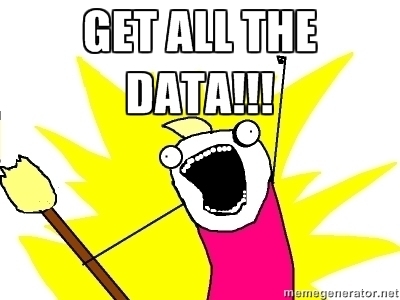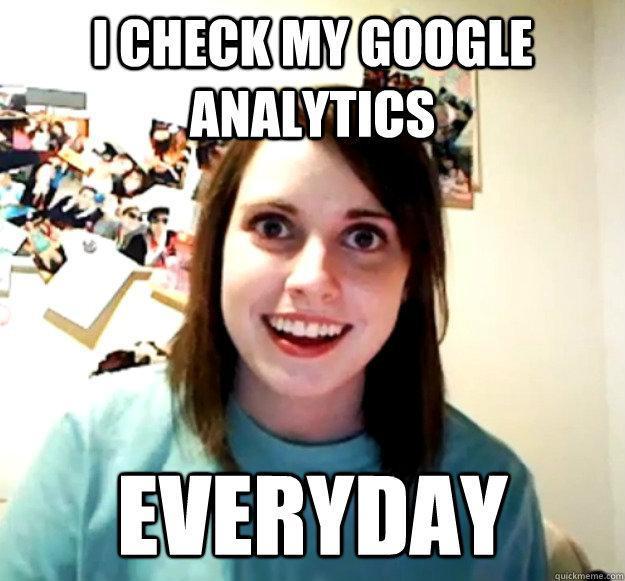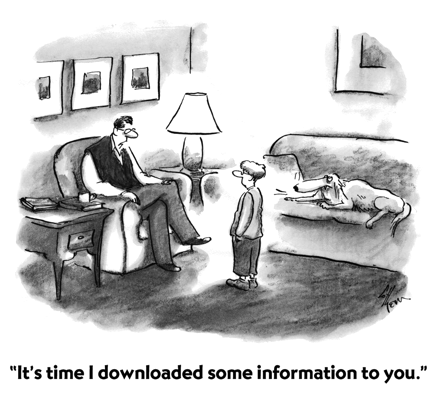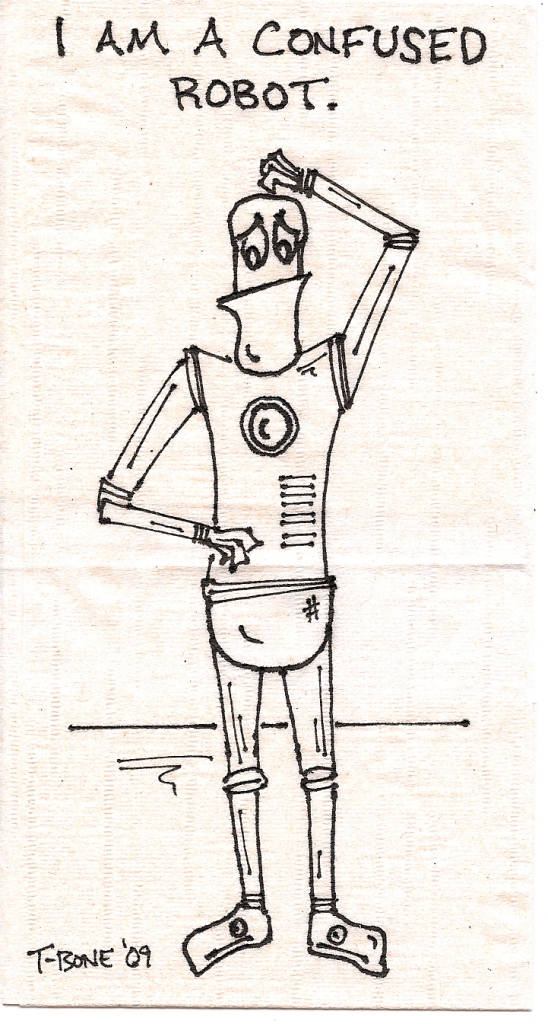Squared Online Module 4 ‘Think Optimised’ Best Bits
2,188 words. Now it’s been published for a few weeks now, I think I’m ready to admit that my last ‘Best Bits’ blog post - about Module 3 of Squared Online, ‘Think Like A Brand’ - was a little excessive. Just, I kept on writing and writing and, soon enough, it went from composing a blog post to nurturing one. I’ve had a few people initially say to me that they really enjoyed it, only to go on and say something like “of what I read anyway” (or something to that effect). Apparently I feel quite strongly about subjects like branding?
‘Think Optimised’
Fortunately for both your sanity and mine, the subject of Module 4 - ‘Think Optimised’ - isn’t prone to such subjectivity. But perhaps that’s a point that needs to be addressed in itself? A little forewarning: the next paragraph relies heavily on boring qualities like rationality and level-headedness, so if you’re looking for some big, brash talk, please look away now.
When it comes to Analytics and the like, I’m a curious case of head versus heart. Whilst I think it would be naive and plain daft to pass up such opportunity and insight that Analytics provides, I’m a real believer that, just because we now have the technology, doesn’t mean we should solely rely upon it. As marketers, we are appealing to people, to human beings. It is essential this isn’t forgotten, we mustn’t become cold-blooded scientists. By all means allow the number-crunching to assist, but don’t let it rule.
I believe it was Aiden Carroll who brought up how, once upon a time, he worked for a head honcho marketer who was responsible for a budget that went into the six figures. And? This head honcho marketer never looked at an Analytics report the few years Aiden worked with him. Is this a good or bad thing? Given Aiden refused to name even the relevant company, let alone employee, suggests he sees this as truly astonishing (and not in a good way) but I don’t wholly believe this method merits such disbelief. Yes, don’t ignore the stats completely, but don’t ignore instinct and gut feeling either.
Compare the data we’re sharing now to the data we were sharing just six years ago
I briefly alluded to the point when discussing the best bits of the previous module, but a rhetorical question-come-statement that was posed by one of the lecturers was: compare the amount - and, perhaps more significantly, what kind - of data we are sharing now compared to that of six years ago. And yet it is universally believed that we are the most privacy aware, tech savvy generation yet? But is it really our willingness to share such detail that’s encouraging such open books, or is it the ease with which it can now be accessed and shared?
Human after all
Rather supporting my suggestion that Analytics should be used to assist and not to decide, albeit unintentionally (honest), there is the notion that Analytics should not be the ‘be all and end all’ as, on the odd occasion, it’s human after all and lies. Though I must add that, for the most part, it does so without knowing. One specific instance of this happening occurs due to the recent prevalence of second screening - according to the latest GlobalWebIndex report, nearly two thirds of teenagers use a second screen while watching TV. Analytics does not know this and, more importantly, it doesn’t know that second screening is a thing; it has no way of knowing when a website is the sole interest of a user and is thus receiving the undivided attention Analytics thinks it’s receiving, compared to when a website is only receiving part of the user’s attention due to a three-way between the multi-tasking browser and two (or more) screens.
Location, Location, Location
Similar to how you don’t need to be told that the weight rested upon the mantra ‘Location, Location, Location’ used to be largely applicable to the world of property and real estate, you also don’t need to be told that, to such an extent was - and is? - it believed in, Channel 4 has an entire series devoted to it. Although it is still very much a part of the estate agency scene (see: the begrudging acceptance of the use of the phrase ‘up and coming’ by the industry), it was suggested that ‘Location, Location, Location’ is coming to tech in a big way. I agree in two ways. First, I believe that location will indeed play a big role in mobile soon enough, especially with the arrival of 4G and the embracing of this notion by the relevant people. Although my believing that location app Foursquare’s day has been and gone rather works against this belief, it was able to raise $35m in investment once upon a time. Second, I believe that the future tense is the right one to use when discussing ‘Location, Location, Location’ in tech’s potential - it’s a petty reason but I genuinely believe that technology’s current vicious struggle against most smartphones’ inability to hold charge for more than one day is the mantra’s undoing.
The most effective kind of market research
Individualism rules, or at least it does according to one lecturer, as discussed in my previous blog post. If you’ve got so much time that you’re actually vaguely interested in knowing my views on the matter, please refer to the aforementioned blog post but, in a nutshell, I believe in this ideology to some extent - yes, people expect to feel that bit more special but, at the end of the day, the very same people get caught up in the hype of a trend or fashion followed by thousands just like them.
What was discussed in this module, then, is how the producer can use the ‘individualism rules’ idea felt by the consumer to their advantage. There’s a whole article devoted to the ‘growing trend in customisation’, and one example that’s mentioned by the writer, Mark Webb, as well as one of our lecturers is from Nissan. Seeing how accessible ‘individualism rules’ can be, the Japanese car manufacturer now allows anyone - you don’t need to be a customer - to design their dream Nissan. Pretty neat.
Even neater, though, is how Nissan used the data that was captured from this activity to their advantage, completing some enormously effective market research without those participating suspecting a thing. It was simple: the features that were predominantly picked during customisation were not going to be offered as additional extras on the base model but offered as standard. Clever Nissan.
An insight is ‘a special piece of knowledge that’s obtained by interpreting data and helps you achieve your business objective’
There’s ‘big data’ and then there’s big data
Big data might be a bit 2013 - one feels ‘IoT’ (or ‘Internet of Things’) has got 2014 covered - but nonetheless this is worth mentioning or, rather, trying to comprehend: there is 1,200 exabytes of data in the world. That’s 1,000, 000, 000, 000, 000, 000 bytes to you and me, and a lot of zeroes to anyone.
Simply: http://www.informationisbeautiful.net/
What makes a good infographic? Data, Story Shareability and Design
“Learn to be wrong but do it damn quickly”
Fellow Square: “Learn to be wrong but do it damn quickly”
Wasn’t saying this to me, mind; more offering it up as an approach to adopt, one that Google is a fan of (check out Google’s top successes and failures) and, in my opinion, are so much better for it.
John Wanamaker: “Half the money I spend on advertising is wasted; the trouble is I don’t know which half”
I’m not sure I agree but it was suggested that a company should spend 95% of its time defining the problem and 5% trying to solve it
Socrates: “The secret of change is to focus all of your energy not on fighting the old, but on building the new”







